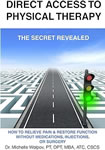Ray S. Kim, Ph.D., is a Clinical Psychologist focused on providing individual, couples, and family therapy, as well as Forensic Evaluations for adults and juveniles. Areas of Consultation:
- Depression
- Anxiety Disorders
- Child and Adolescent Issues
- Relationship Problems
| - Substance Abuse
- Psychological Evaluations
- Sex Offender Evaluations
- Violence Risk Assessments
|
Dr. Kim is currently the Director of Chicago Metropolitan Forensic Services at the Illinois Department of Human Services where he supervises a team of clinical psychologists and social workers who evaluate the placement of individuals into forensic facilities. He also serves as the Director of Clinical Training at Chicago Metropolitan Forensic Services where he developed and supervises a forensic practicum program which provides opportunities for specialized clinical training in the area of forensic psychology.
Dr. Kim was one of the first psychologists trained by the Illinois Department of Human Services to evaluate sex offenders for sexual dangerousness under the Sexually Violent Persons Commitment Act. He is also among the first to be certified as a Licensed Sex Offender Evaluator and Licensed Sex Offender Treatment Provider in Illinois.
Certifications - Licensed Clinical Psychologist, Board Certified Forensic Psychologist, Licensed Sex Offender Evaluator, Licensed Sex Offender Treatment Provider, Board Registered Mental Illness/Substance Abuse Provider, Fellow of the American College of Forensic Examiners Institute, Fellow of the American College of Advanced Practice Psychologists, Diplomate of the American Psychotherapy Association, Diplomate of the American Board of Psychological Specialties, National Register of Health Service Psychologists. www.experts.com
View Dr. Kim's Expert Witness Profile.
By: Dr. Ray Kim
Forensic psychological evaluations have become a valuable resource for the criminal justice system by addressing important forensic questions. For instance, assessing risk for violence can help courts make appropriate decisions on issues such as sentencing, granting privileges, and community reintegration. If an individual is assessed to be a high risk for future violence, a judge has grounds to order a more restrictive setting compared to someone who is a lower risk for recidivism. By tailoring court decisions based on accurate psychological evaluations, the community is safer while the defendant's rights are also protected.
Ray S. Kim, PhD
If you were found incompetent to stand trial, this workbook was designed for you. It contains information and activities that will help you understand why you were found incompetent and what you need to do to become competent to stand trial. As you probably know by now, the court system can be very intimidating and scary, especially if this is your first experience with it. The purpose of this workbook is to help you understand the court system better so that you are less nervous and more confident about taking care of your case.
Ray S. Kim, PhD
This manual was written to provide guidelines for restoring competency to defendants in a structured and efficient manner. Practical information is presented to assist forensic providers from their patient’s initial finding of incompetency to the final disposition of the case. In addition, instructional materials and other resources are provided, which include definitions of court terminology, educational activities, competency tests, court report templates, and a certificate of completion. Forensic providers are encouraged to customize the contents of this manual to comply with specific State statutes.
Ray S. Kim, PhD
When minors violate a criminal statute, they enter the juvenile justice system rather than the adult criminal system. Although differences exist, both court systems recognize the competency to stand trial law. Just like adults, it would be unfair for juveniles to proceed in the legal process if they were deemed incompetent to stand trial because they did not understand the court proceedings against them or could not adequately assist in their defense. The purpose of this book is to educate minors about the juvenile justice system and prepare them for their day in court.
Ray S. Kim, PhD
The correctional system has become the largest provider of mental health care in our society. Due to the prevalence of mental disabilities in the criminal justice system, many defendants are found Incompetent to Stand Trial. However, defendants do not usually understand what it means to be incompetent, let alone what to do about it. The purpose of this guidebook is to help defendants better understand why they were found incompetent, what they can do about it, and how to get the best possible outcomes.










